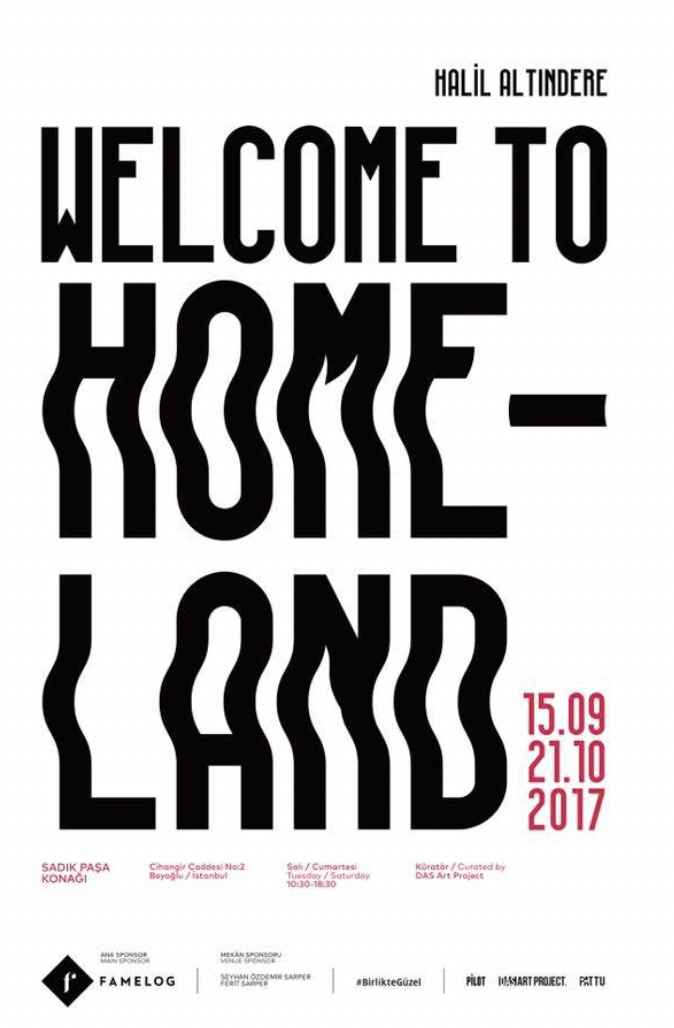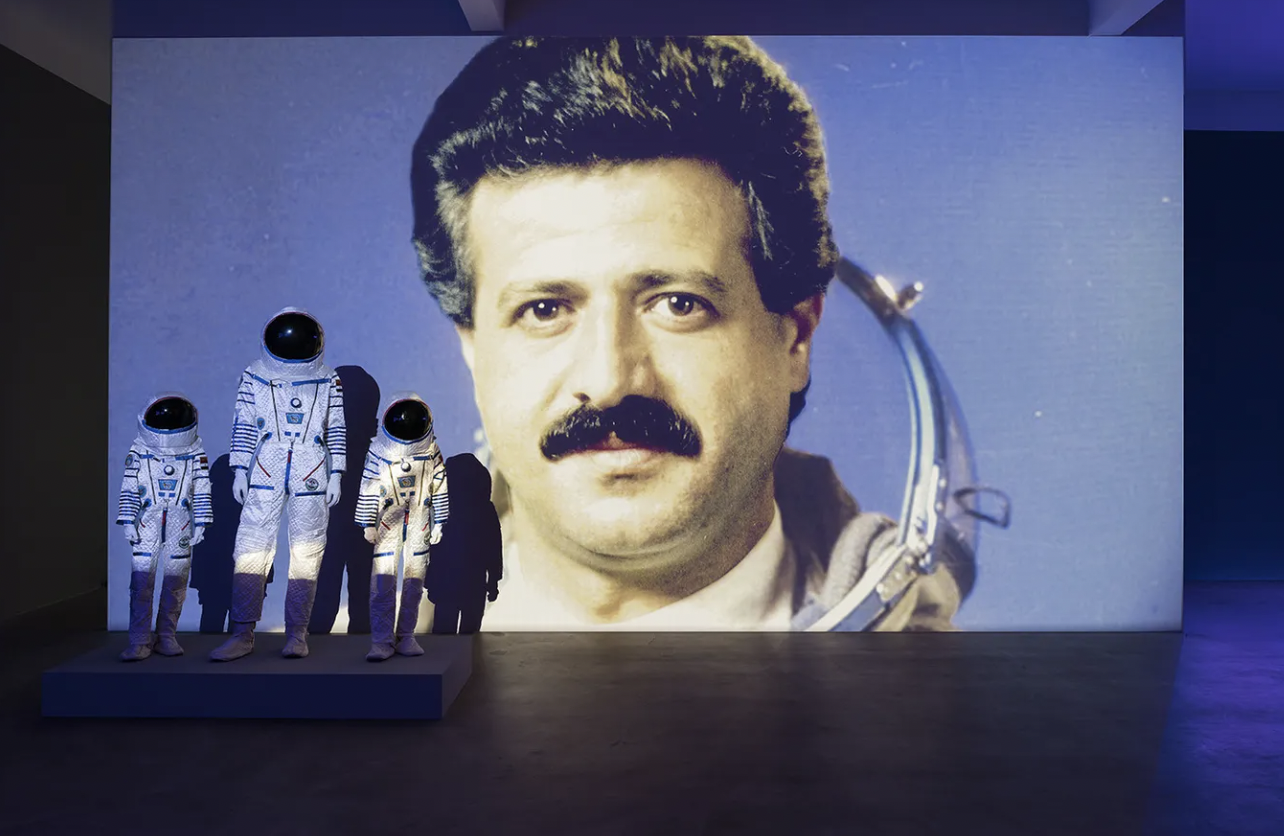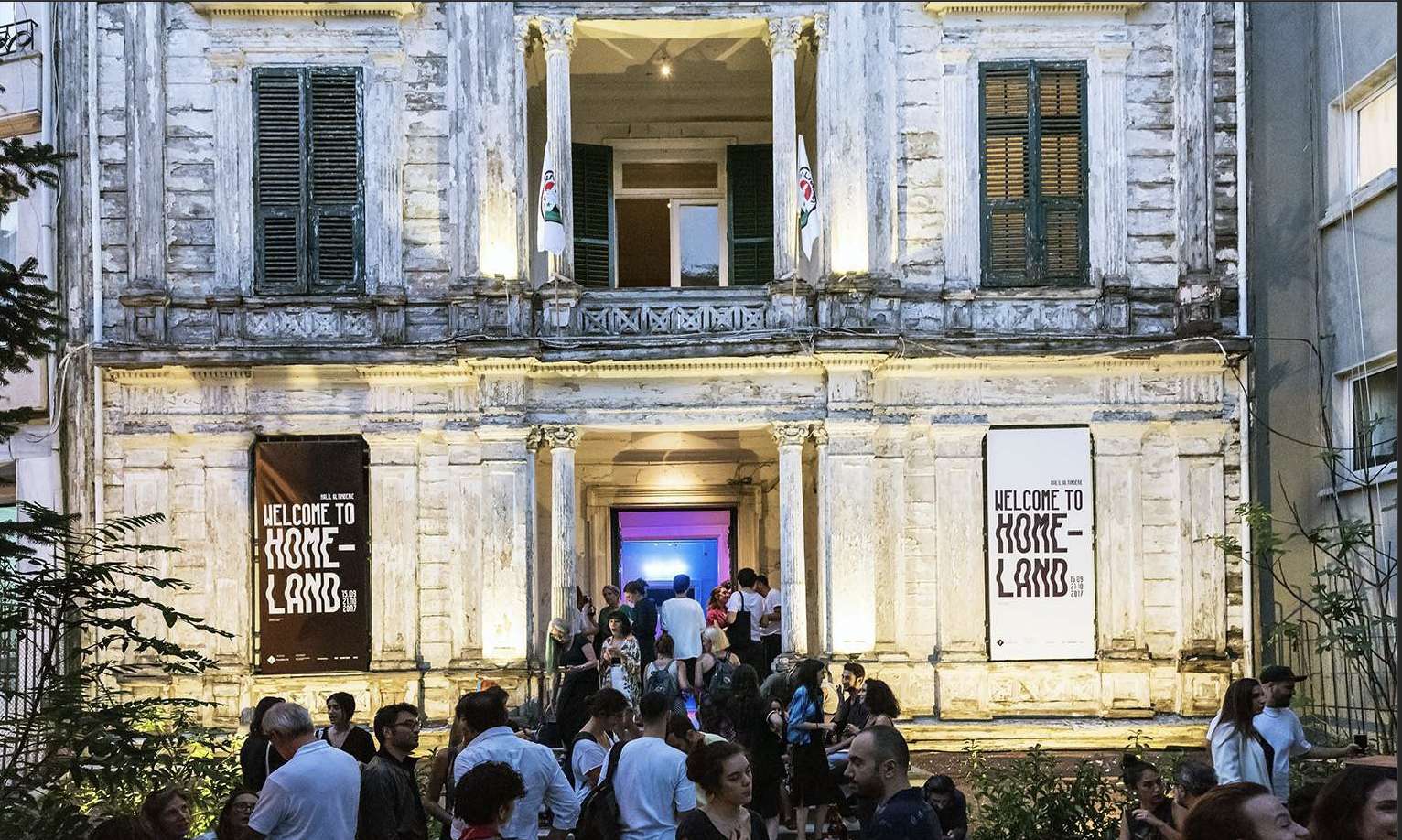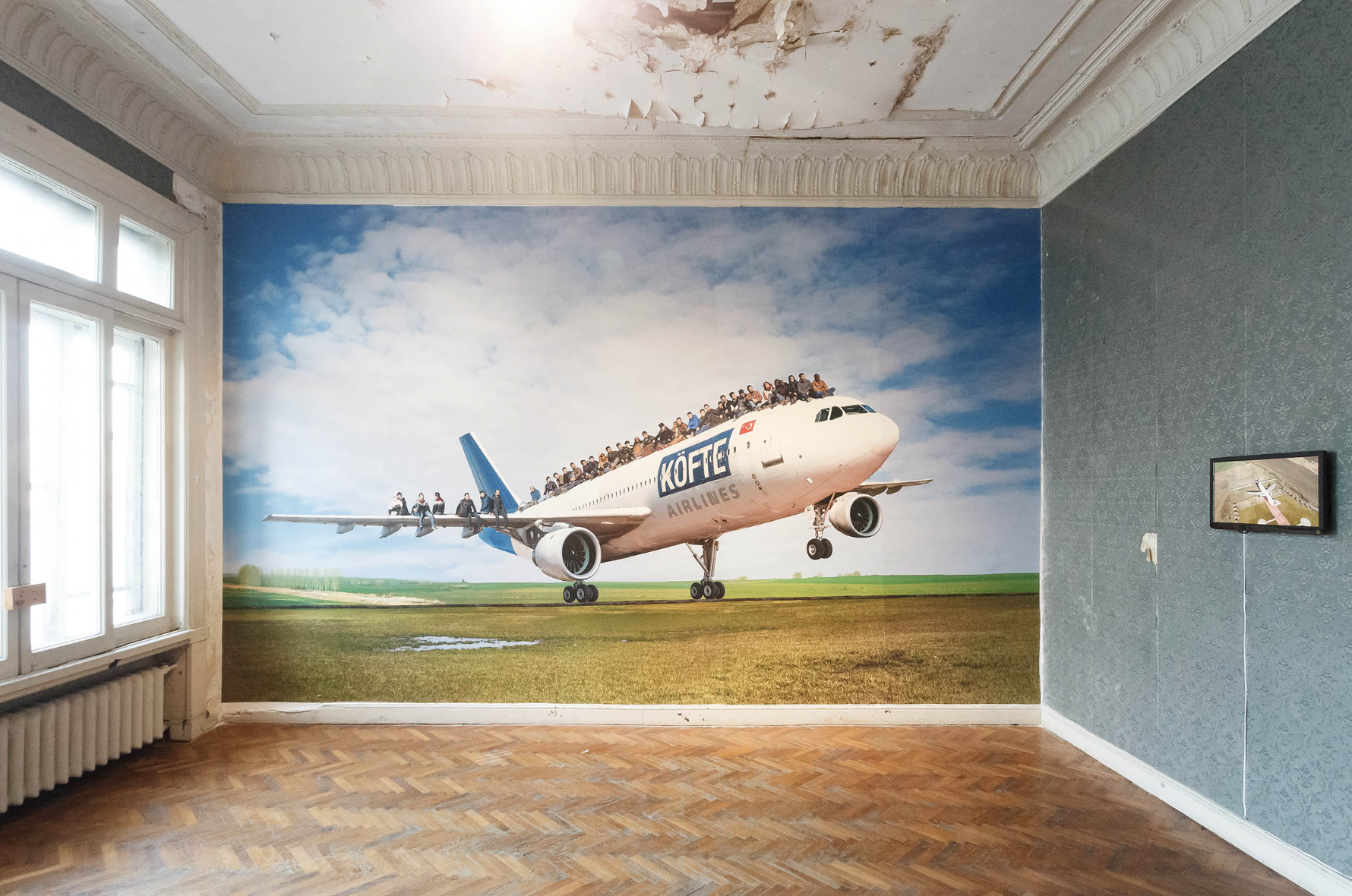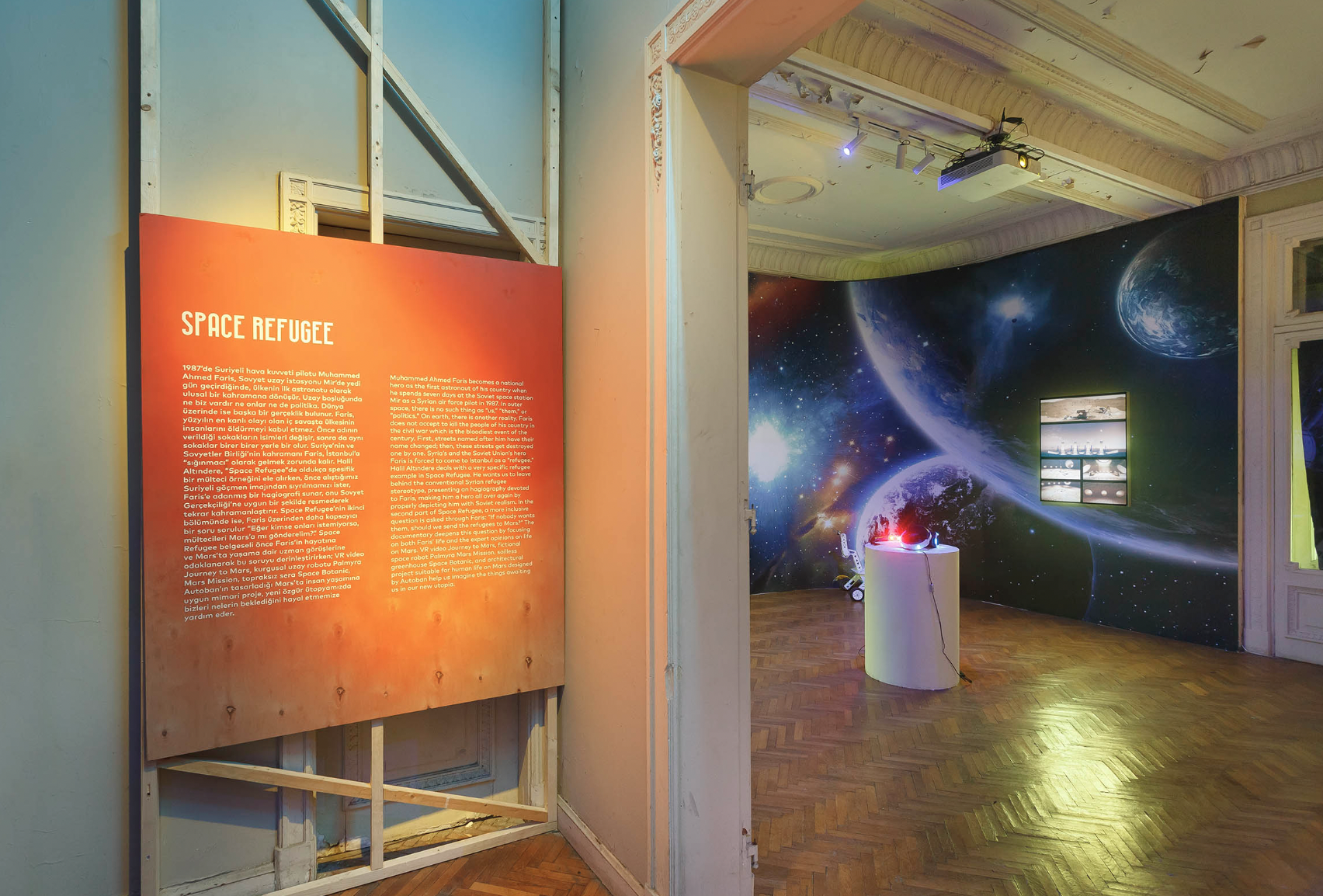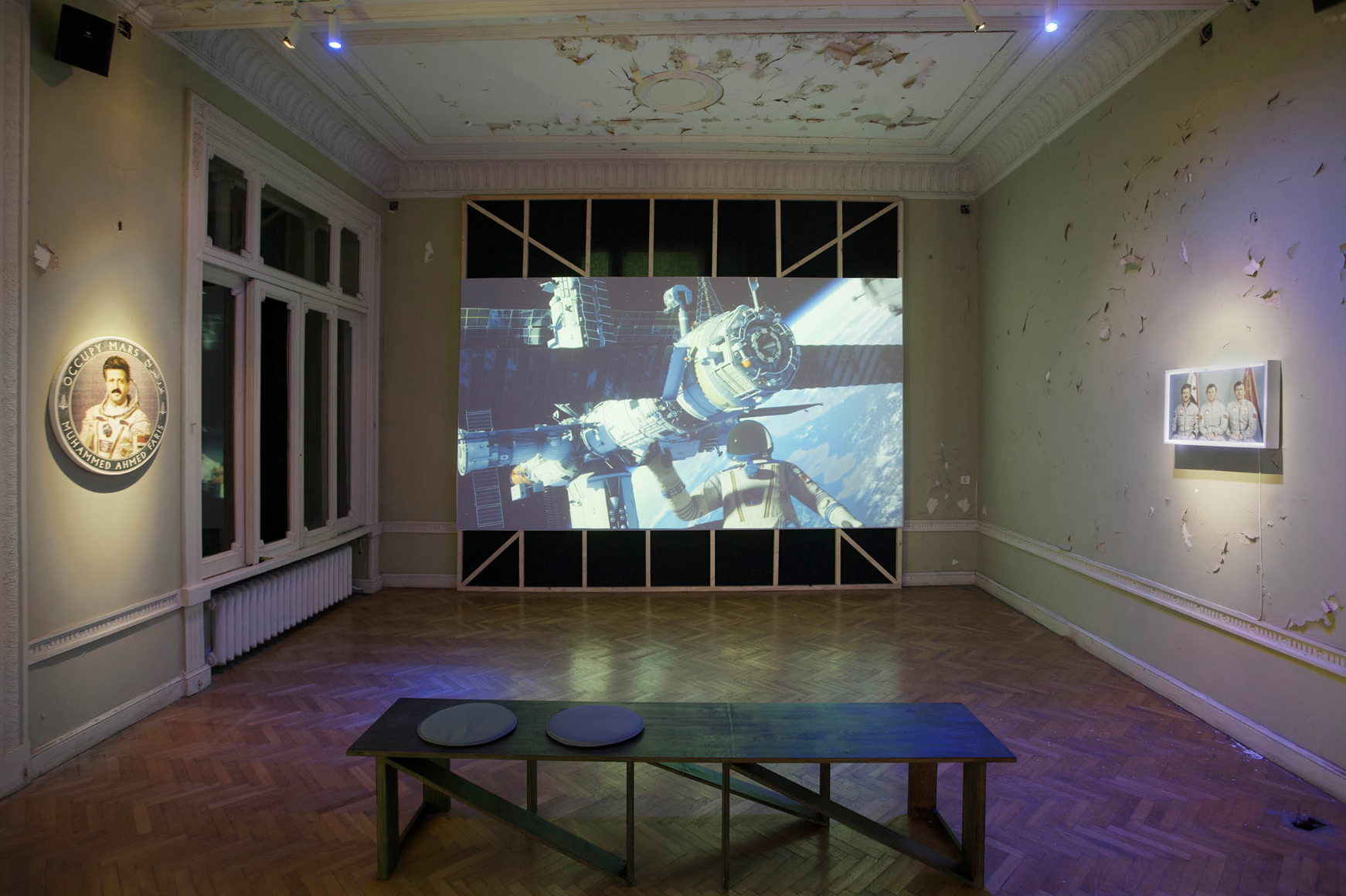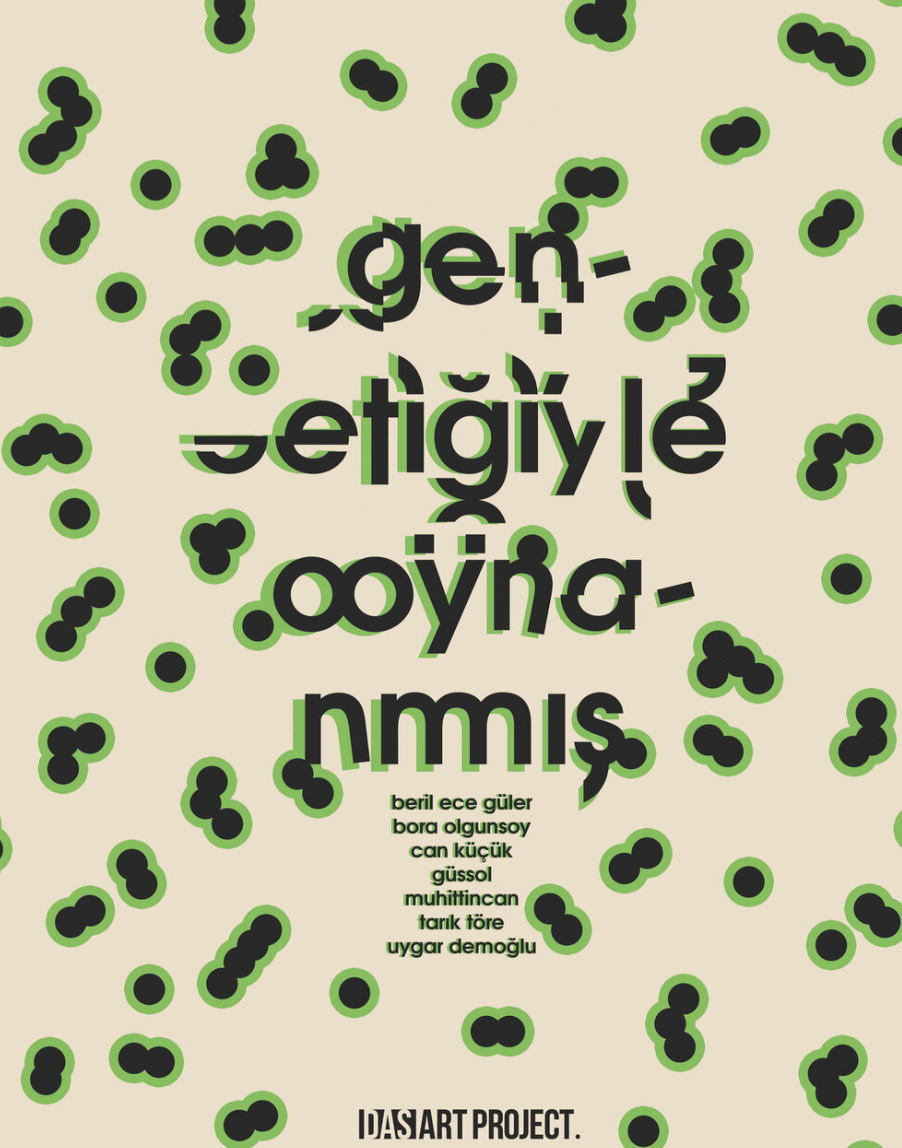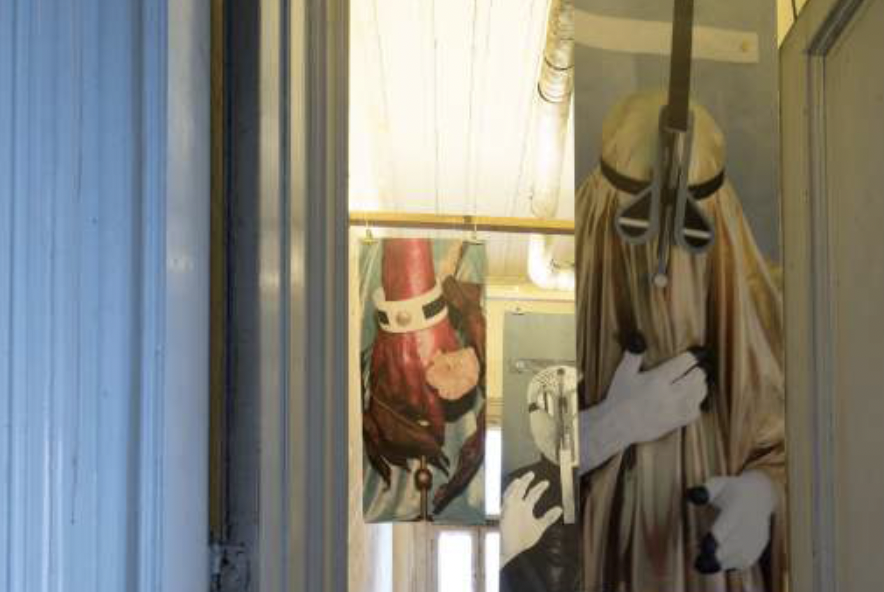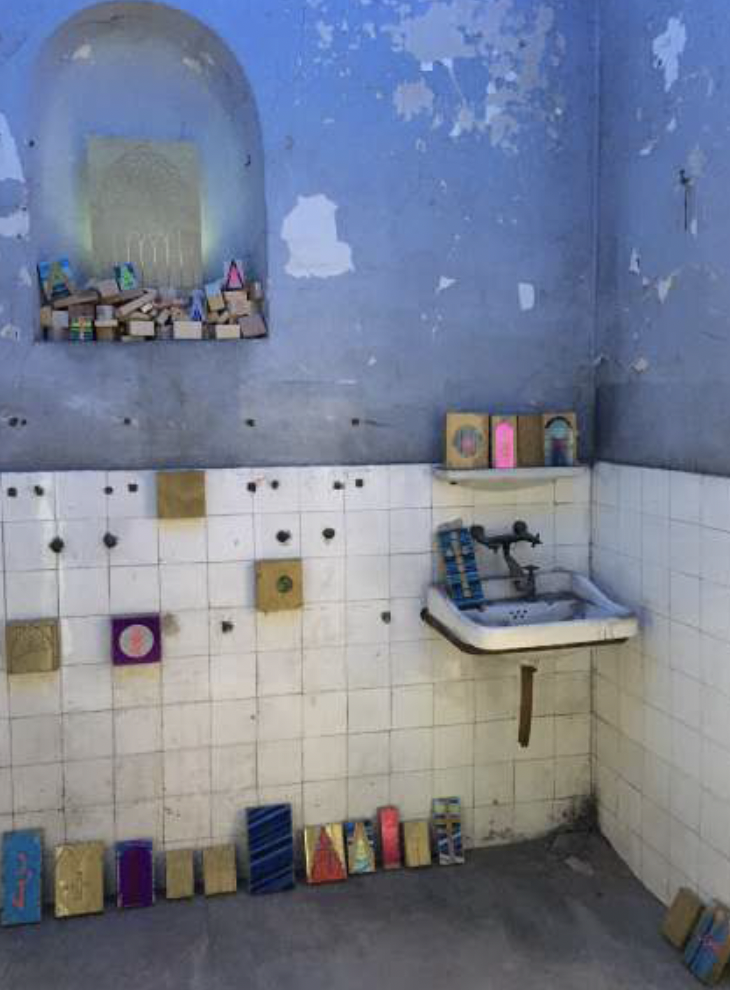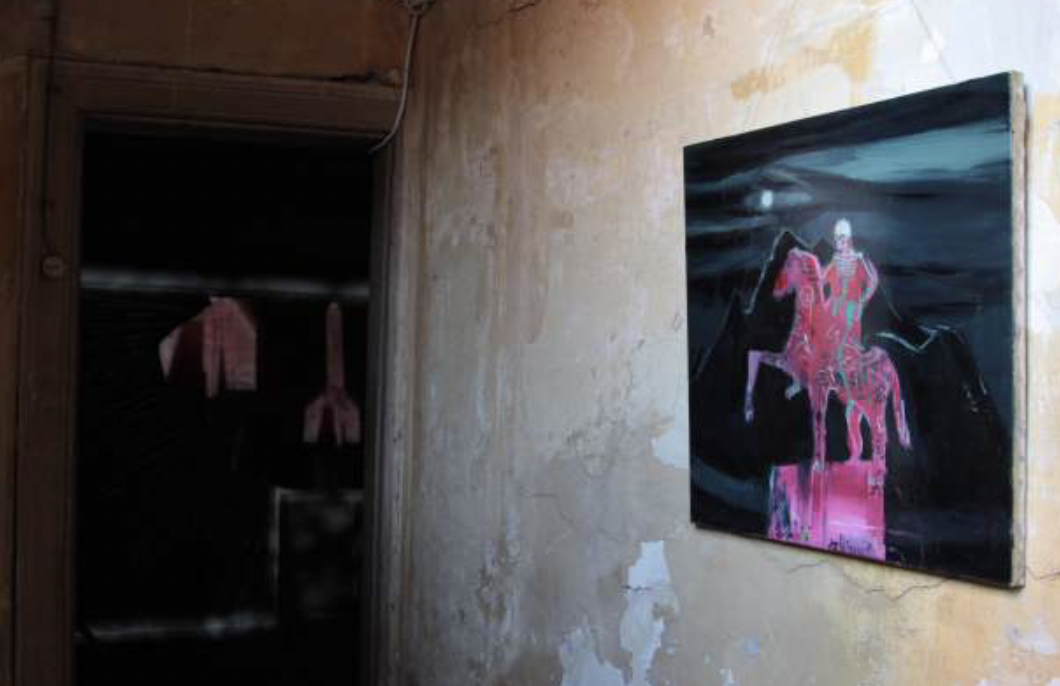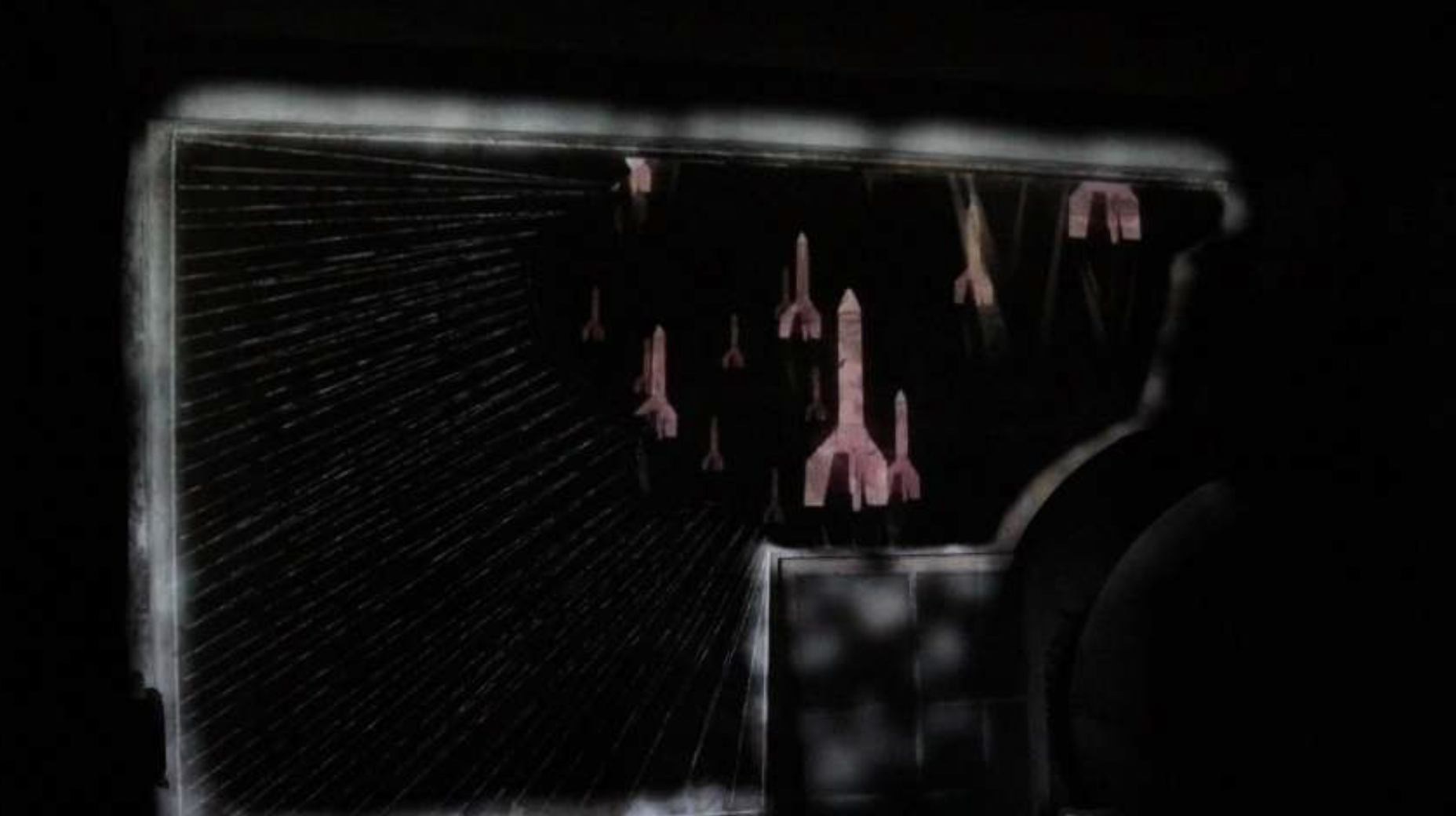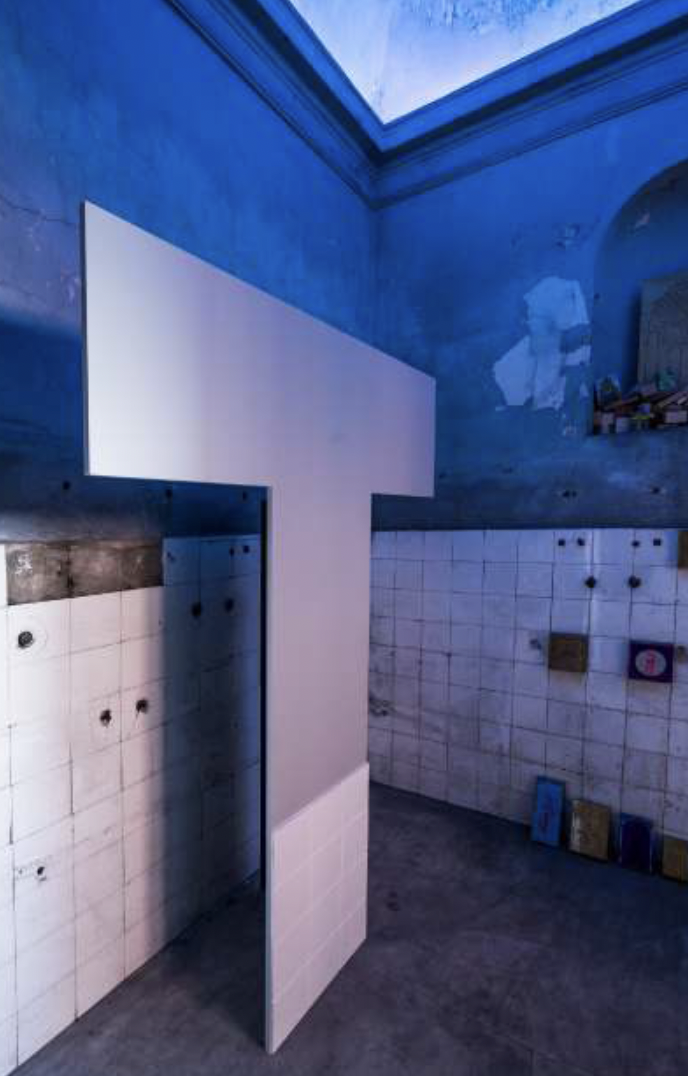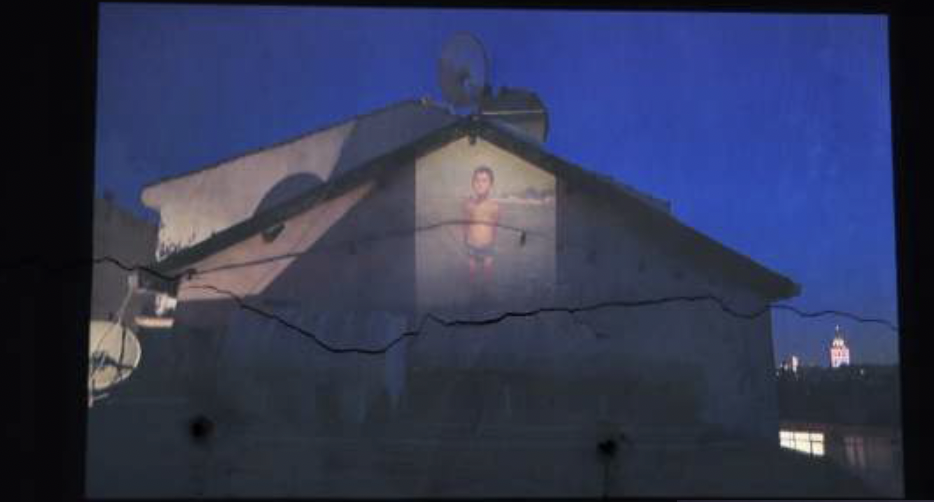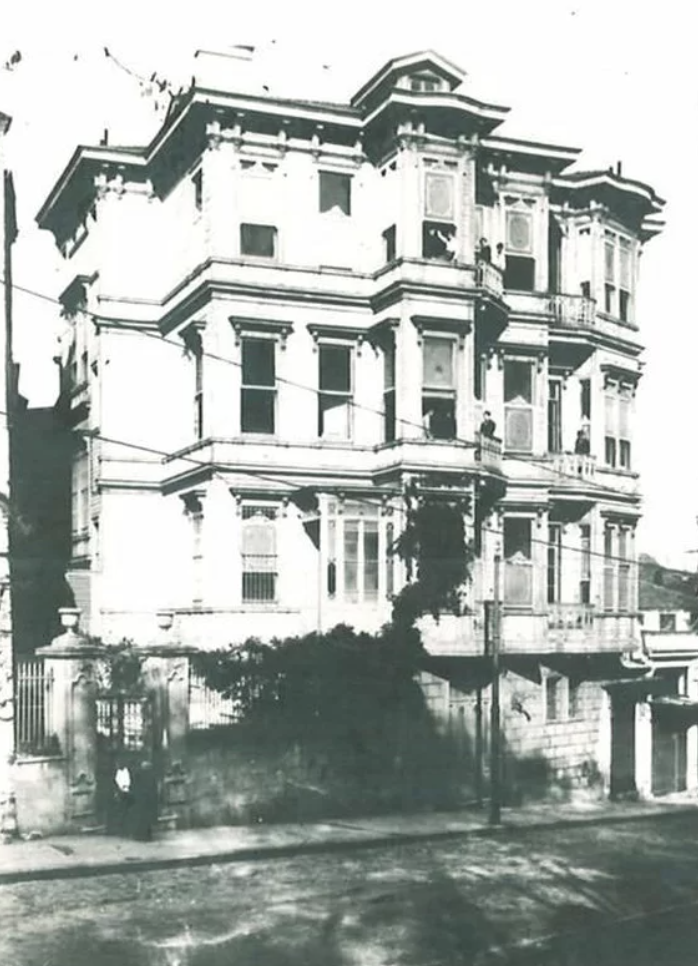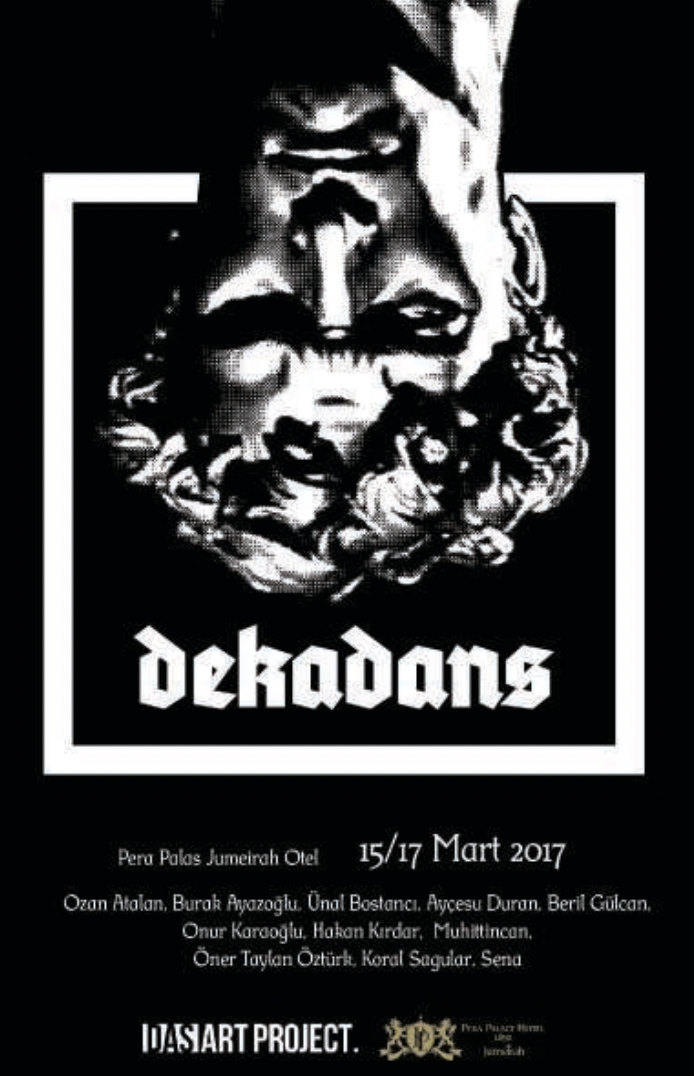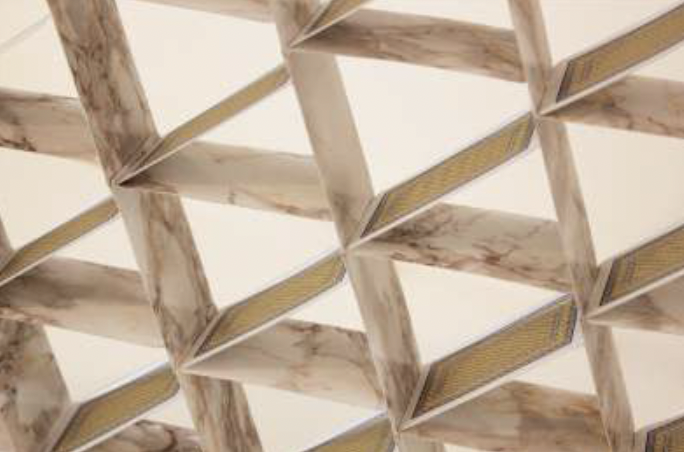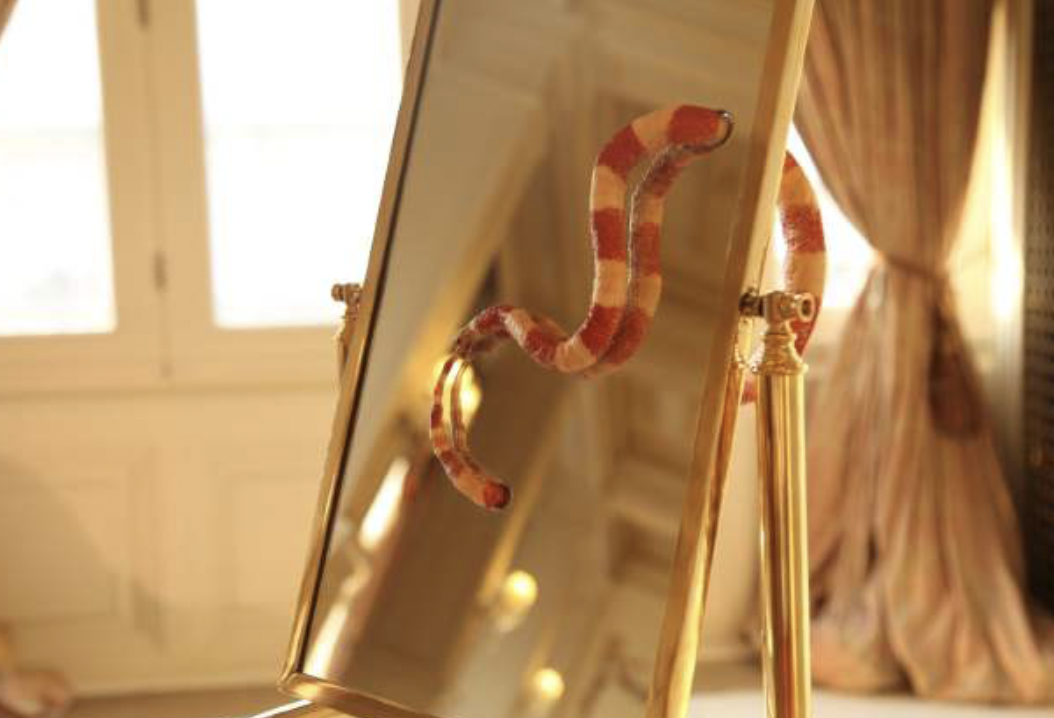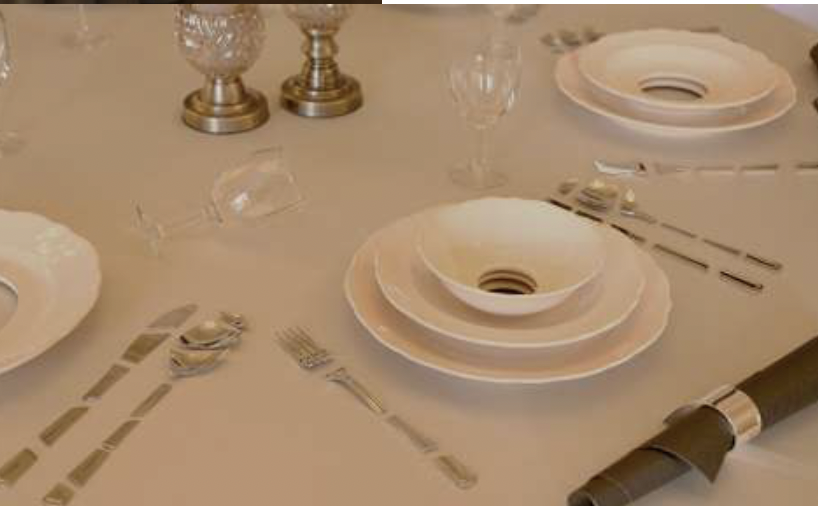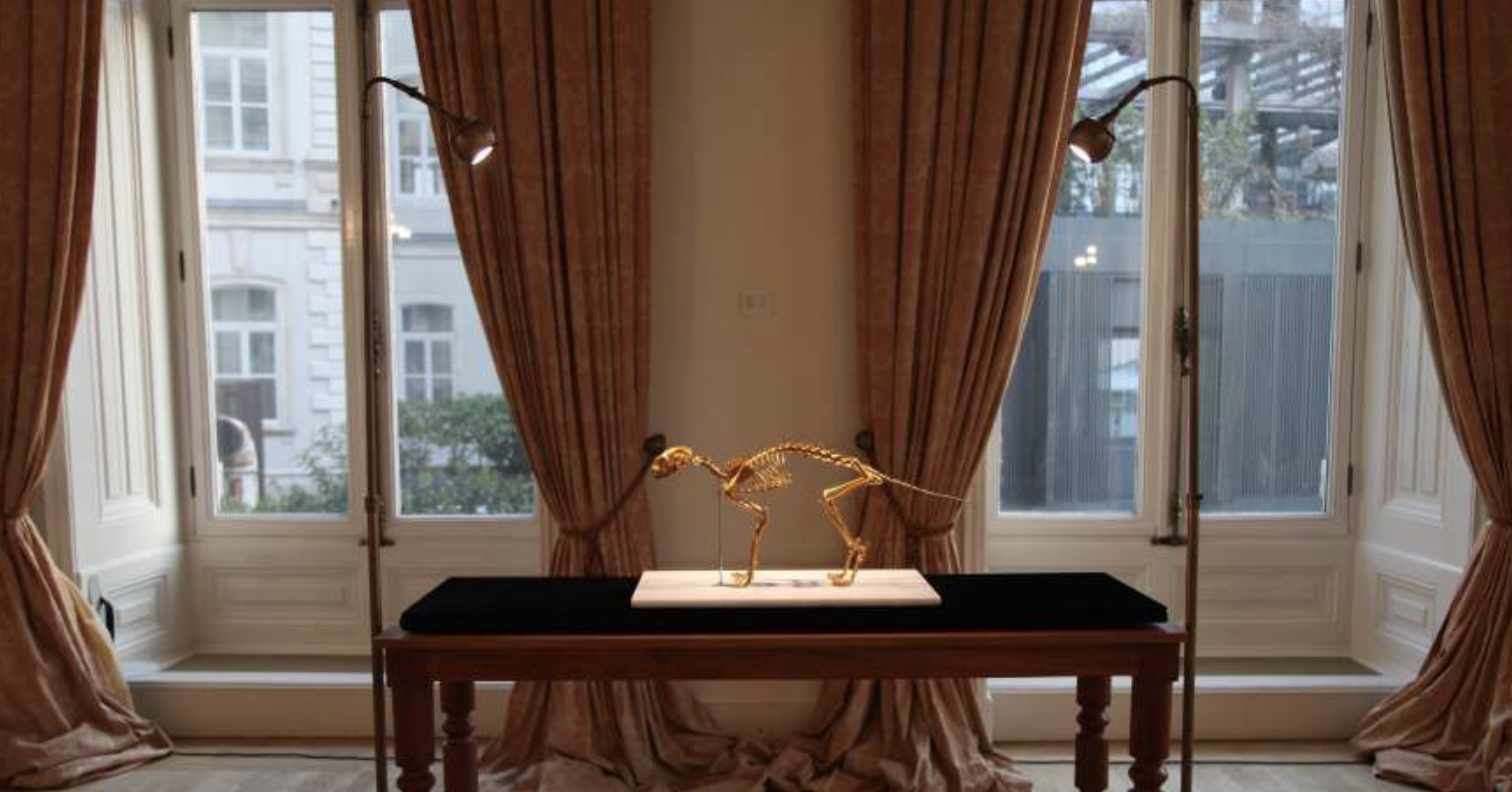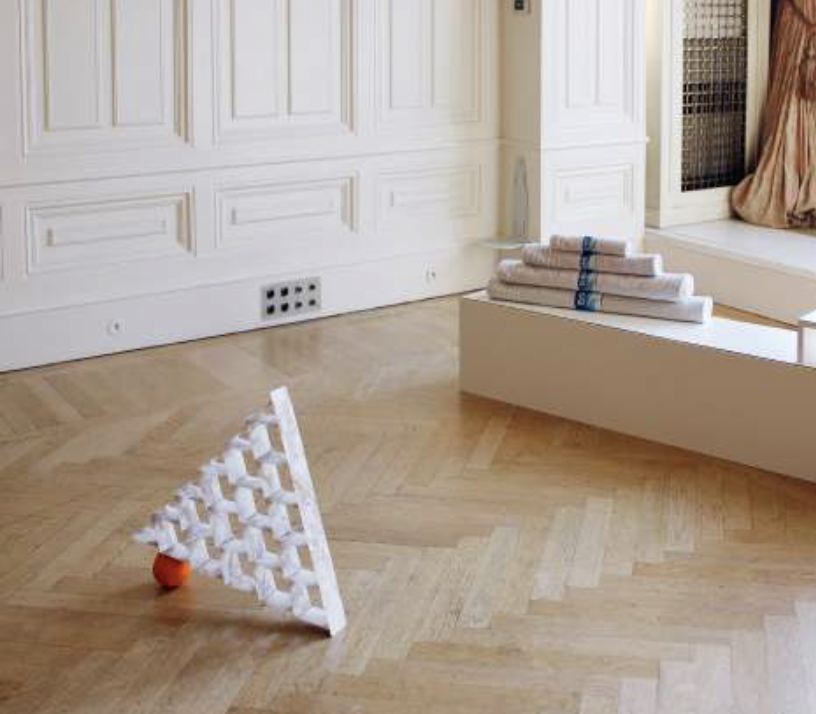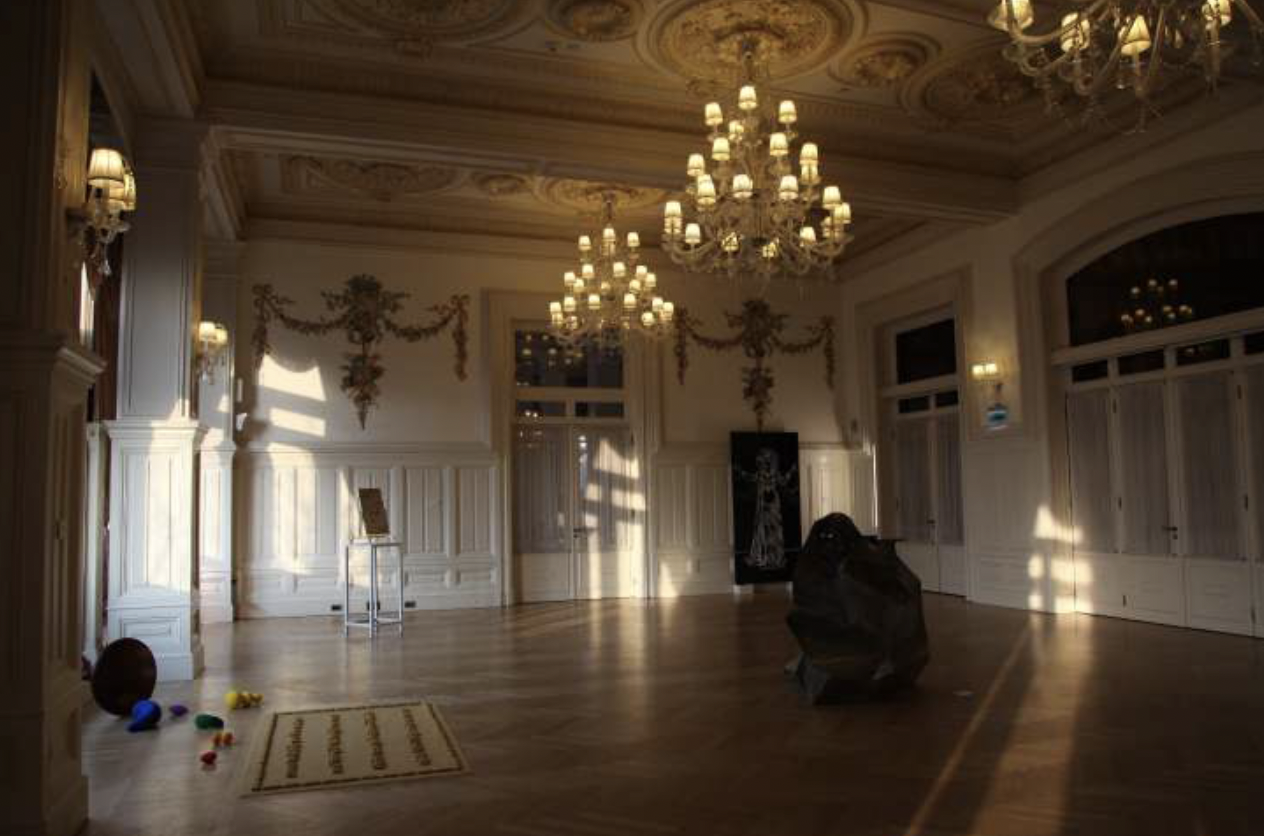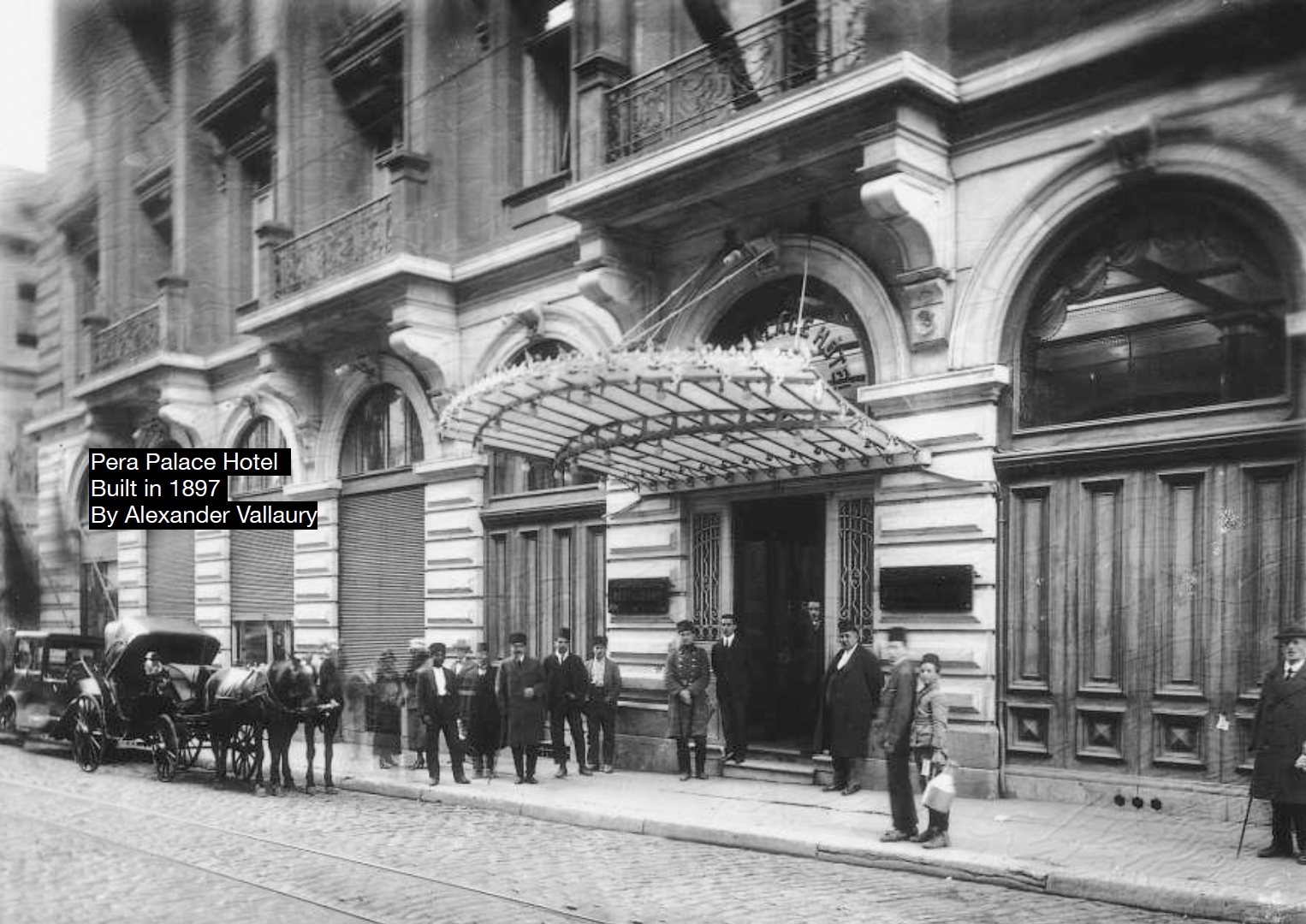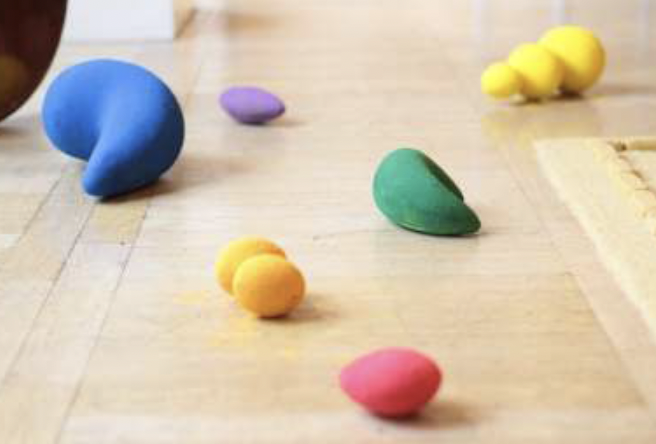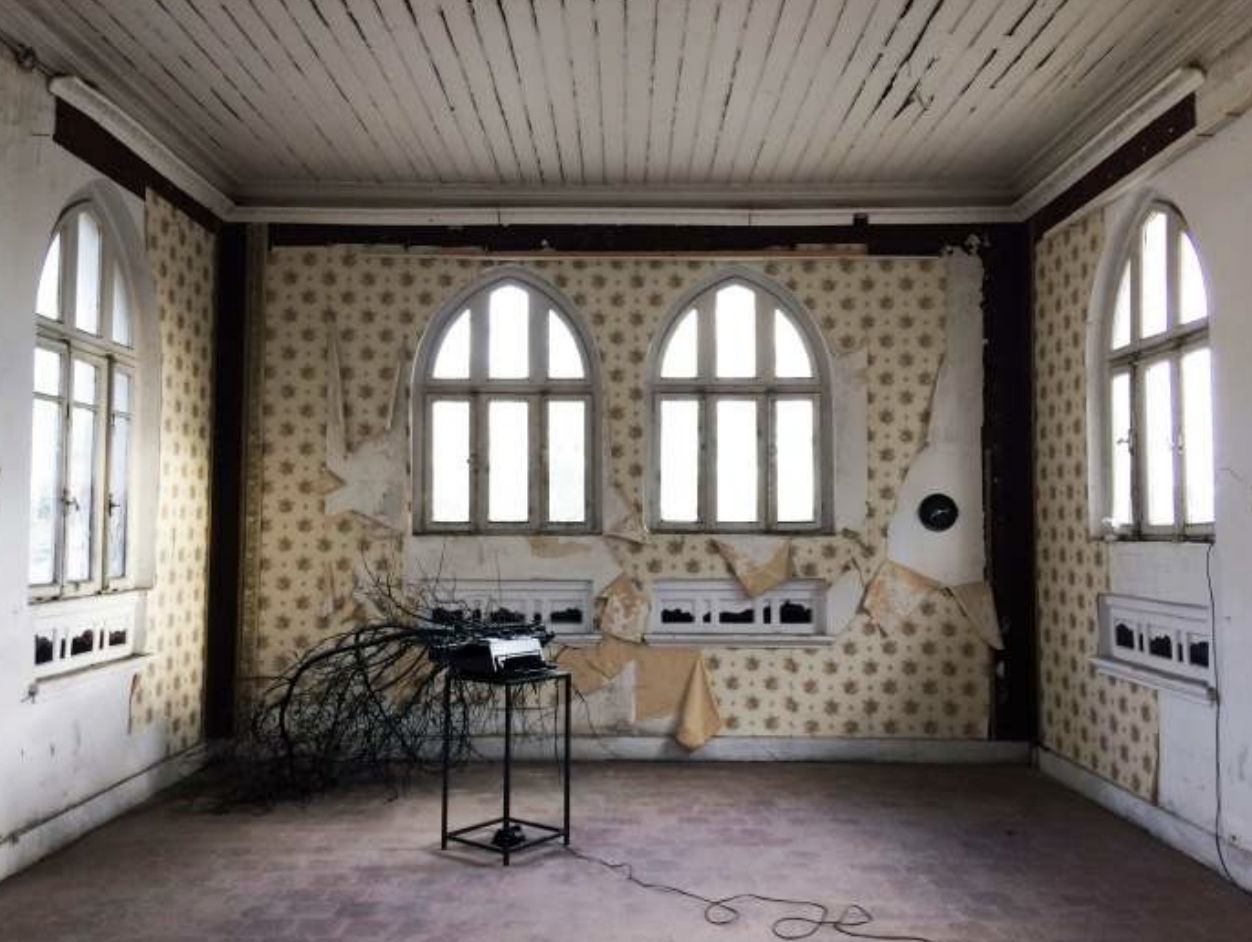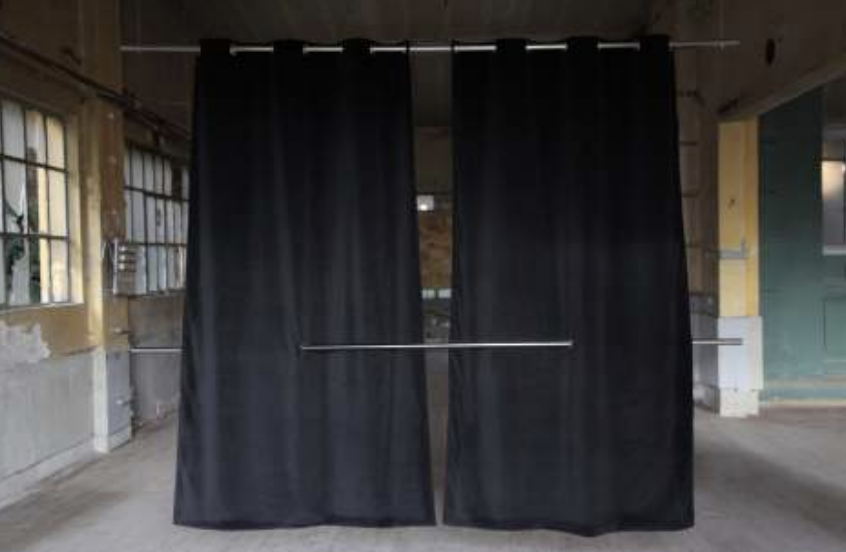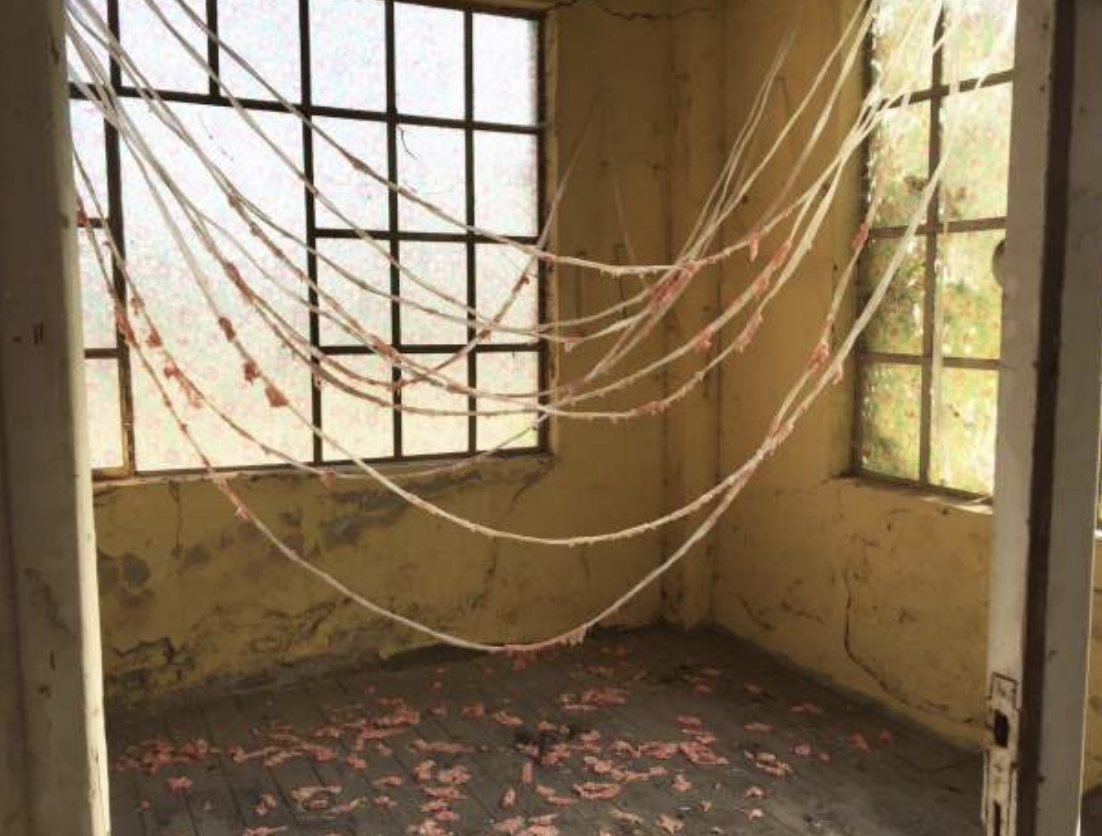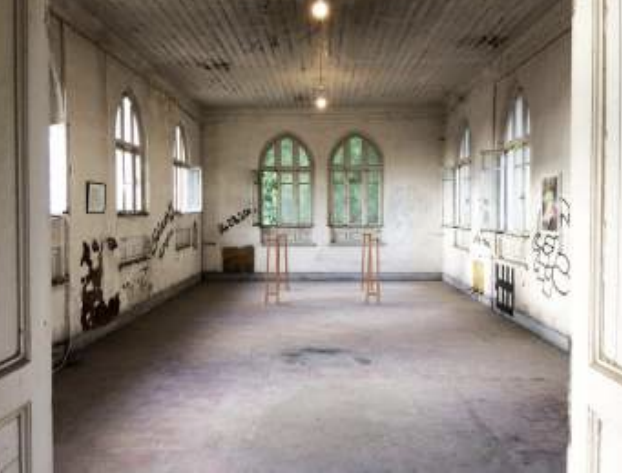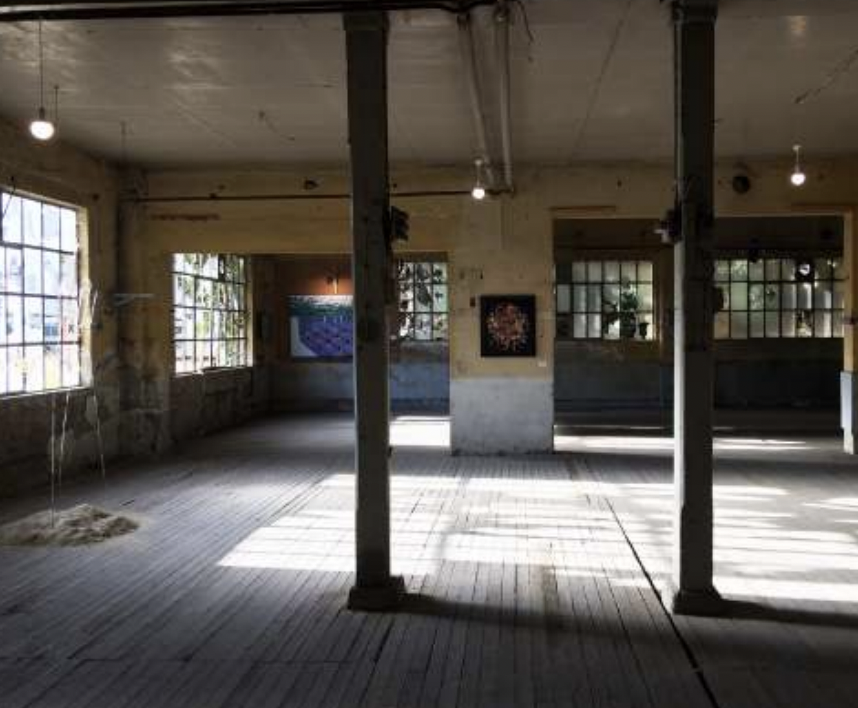Das Art Project, founded by Çisem Asya Albaş, Oğulcan Haşlaman and Alper Turan in 2016, was a curatorial collective that produced 4 site-responsive projects in İstanbul and dissolved in 2018.
Working with young generation local artists, we were organizing exhibitions in historically and culturally-significant buildings of Istanbul, with the purpose of reutilizing these urban heritages and preparing ephemeral exhibitions by taking our subject-matters from
buildings’ spatial, historical and political specifics in radically gentrified İstanbul.
We saw the exhibition spaces upon which we constructed the theoretical frame of exhibitions, we exhibited the
buildings itself which were not accessible by public before.
Halil Altındere: WELCOME TO HOMELAND
Pilot Gallery![]()
Exhibition
Co-curator (Das Art Project)
14 September 2017 - 21 October 2017
"Welcome to Homeland" brings together Halil Altındere’s multidisciplinary works focusing on the “refugee crisis” that haven't been exhibited in Istanbul. The exhibit provides an inclusive frame for the refugee crisis by using two axes of narrative that are constructed by the two refugee figures who turn into heroes, in fact, superheroes. Their stories get fictionalized with Altındere’s phantasms that manifest themselves differently each time, never losing touch with the bitter reality.
more here
GENETICALLY MODIFIED
Bahar, off-site exhibition of 13th Sharjah Biennial: Tamawuj
![]()
Exhibition
Co-curator (Das Art Project.)
13 May—10 June 2017
with Can Küçük, Beril Ece Güler, Bora Olgunsoy, Güssol, Tarık Töre, Muhittincan, Uygar Demoğlu
Can the apple fall far from the tree? And can apples and oranges mix? If we add a minaret to a church and a box office to a mosque, would that church be a mosque and that mosque be a museum? Can you create feelings in a laboratory? If you were gifted powdered milk, could you turn it down? Would Hitler be against GMO? Are transformations organic or just changes with predetermined rules? What do we carry in our seeds? Possibilities, illnesses or the looks of our faces? Are the polycephalic children the product of polytheism against nature? Whose history is manifested when we manipulate, protect or leave history be? Is the artificial against the natural, or is it a consequence? When we go underground do we find a germinating seed, or a venomous army getting prepared for the harvest of the next century, or another period under seal? Are we a sum of all the things injected to us?
more here
DECADENCE
Pera Palace Hotel
![]()
Exhibition
Co-curator (Das Art Project.)
15-20 March 2017
with Ozan Atalan, Burak Ayazoğlu, Ünal Bostancı, Ayçesu Duran,Beril Gülcan, Onur Karaoğlu, Hakan Kırdar, Muhittincan, Öner Taylan Öztürk, Koral Sagular, Sena
Pera Palas became a symbol of western orientalism
and Ottoman westernization in 1895 when it first
opened, and has changed with its surroundings
within 125 years. Today, as a part of a chain of
Dubai-originated hotels, it still keeps up with 2010’s
Beyoglu. Whatever happens outside, the
entertainment in the ballroom continues.
“Decadence” exhibition aims to establish parallelism
between the two periods in which the face of the
country returns to the west and east with a sharp
turn. 11 artists present topics on today's collapse,
starting with references from cult guests of the hotel
or from the personal history of the hotel. The
productions of the artists spread throughout the
ballroom of Pera Palace, Grand Pera; and it ends in
the 411-numbered sensational suite of Agatha
Christie.
When the Orient Express started its Paris-Istanbul line service, there were no hotels in Istanbul that could meet the standards of the Western guests, so the owner of the Express established Pera Palace, throwing first seeds of liberal economy in Istanbul. With this hotel, the travelers could feel like they were home and talk about orientalism, without being exposed to the realities of the country. The hotel—which was the first building, other than the Ottoman palaces, that was supplied electricity—lit up the dark streets and the dark period as a beacon of Turkish modernism and westernization. The ballroom hosted the country’s first painting exhibition, first fashion show and innumerable receptions. Throughout its history, Pera Palace witnessed the fall of an empire, formation of a new country, and the course of the new republic. As the faces and appearances of the guests changed, the hotel kept its characteristics. The Palace gathered writers, first ladies, emperors, directors, presidents, secret agents, dancers and actors that passed through Turkey’s historical landscape under its roof, all the while enriching its story and always painting an immersive scene. In this magnificent building, the artwork around“cult” figures that Pera Palace has hosted in its most luminous era, along with the lives of these figures and the personal history of the hotel, will be investigated to examine the decadence of today.
OXYTOCIN
Haydarpaşa Dikimevi, Muhaccir Misafirhanesi
![]()
Exhibition
Co-curator (Das Art Project.)
14-15 October 2016
w Arif Akdenizli, Anonym, Burak
Apaydın, Burka Bayram, Meriç Canatan,
Eser Çoban, Kıymet Daştan, Derya Dinç,
Epitel, Mert Gafuroğlu, Beril Ece Güler,
Güssol, Deniz Kaprol, Nazlı Khoshkhabar,
Can Küçük, Ufuk Barış Mutlu, Ezgi Nalçacı,
Bora Olgunsoy, Begüm Tekay, Tarık Töre,
Ayça Türkmen, Gülçin Uzun, Merve
Özçelik, Vardal Caniş Su, Gizem Ünlü,
Oytun Yılmaz
"Oxytocin: Experiments on Trust" is an exhibition
project took place in a derelict building used for a
public event for the first time. For the exhibition,
26 young artists produced new artworks on the
theme of "güven" (which can be translated as
confidence, trust, dependence etc.). Mimar
Kemaleddin's (Kemaleddin the Architect) one of
the early works in 1900s, the Guesthouse of
Immigrants, located in the Haydarpaşa train
station area, hosts the exhibition. In order to
emphasize this hospitality and the "ephemera",
the exhibition which spreads over two floors of
the building remains open just for one day.
![]()
![]()
![]()
![]()
![]()
![]()
![]()
![]()
![]()
![]()
![]()
![]()
![]()
![]()
![]()
![]()
![]()
![]()
![]()
![]()
![]()
![]()
![]()
![]()
![]()
![]()
![]()
